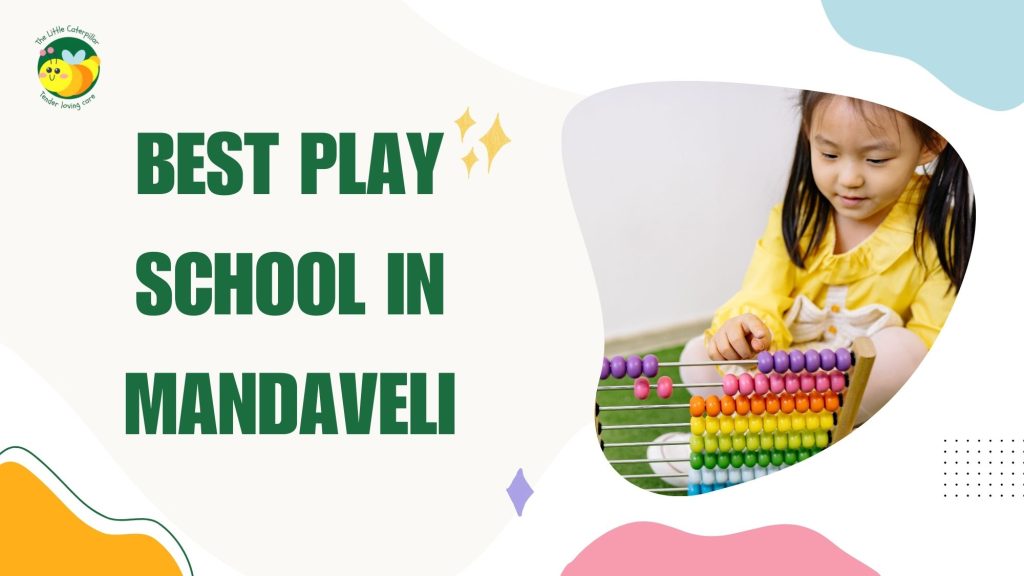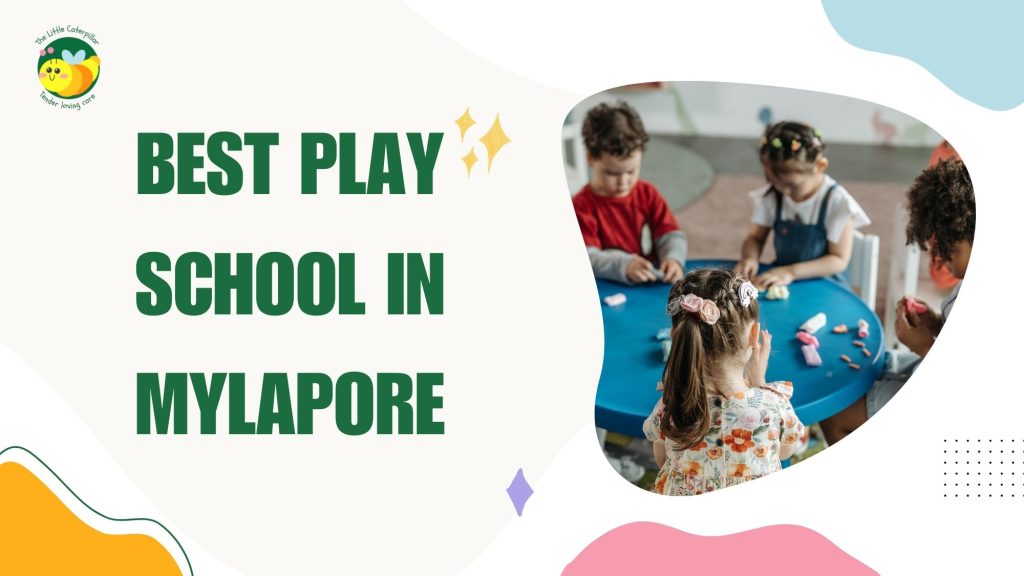Table of Contents
The Little Caterpillar – Playschool in Chennai – Inspired by Montessori and Reggio Emilia with an Indian touch
Introduction
Handling toddler tantrums can be a daunting task for parents and caregivers alike. These outbursts are a natural part of child development, influenced by various factors such as hunger, fatigue, and emotions. Integrating principles from Montessori and Reggio Emilia educational methods, infused with Indian cultural insights, provides a unique approach to managing these challenging behaviors effectively. This blog post explores practical strategies and techniques derived from these educational philosophies, tailored to the specific needs and cultural context of Indian families.
Understanding Toddler Tantrums
Toddler tantrums are often triggered by frustration, a need for independence, or difficulty in expressing emotions verbally. In Indian families, cultural values and parenting styles significantly shape how tantrums are perceived and managed. Understanding these triggers and cultural nuances is essential for applying effective strategies from educational methodologies like Montessori and Reggio Emilia.
Montessori Approach: Cultivating Independence and Self-Regulation
The Montessori method emphasizes creating an environment that fosters independence, self-directed learning, and respect for the child’s developmental stages. Key strategies from Montessori to handle tantrums include:
- Prepared Environment: Designing a safe, child-friendly space where toddlers can explore and engage in activities independently. This environment should be organized, stimulating, and conducive to learning.
- Freedom within Limits: Offering toddlers choices within structured limits, empowering them to make decisions and feel a sense of control over their actions. This approach reduces frustration and minimizes tantrums triggered by a lack of autonomy.
- Practical Life Activities: Encouraging toddlers to participate in everyday tasks such as pouring water, sorting objects, or dressing themselves. These activities promote motor skills development, independence, and self-confidence.
- Consistency and Routine: Establishing predictable routines for meals, nap times, and play ensures toddlers feel secure and reduces anxiety that can lead to tantrums.
Reggio Emilia Approach: Encouraging Creativity and Emotional Expression
The Reggio Emilia approach focuses on fostering creativity, self-expression, and collaboration through engaging experiences and activities. Techniques from Reggio Emilia to manage tantrums include:
- Art and Sensory Exploration: Providing opportunities for toddlers to express emotions through art, music, and sensory play. Engaging in creative activities helps children process feelings and communicate their emotions effectively.
- Documentation and Reflection: Documenting children’s experiences and interests through artwork and journals encourages self-reflection and communication. This practice enhances emotional awareness and supports tantrum prevention by promoting dialogue.
- Nature and Outdoor Play: Exploring natural environments and outdoor spaces stimulates curiosity and provides a calming effect on toddlers prone to tantrums. Outdoor play encourages physical activity and emotional regulation.
Adapting to the Indian Cultural Context
Incorporating Montessori and Reggio Emilia methods with an Indian touch involves respecting cultural values and family dynamics. Here’s how these educational philosophies can be adapted:
- Respect for Elders and Authority: Balancing independence with respect for elders and authority figures aligns with traditional Indian values. Providing choices within cultural norms fosters cooperation and minimizes power struggles.
- Storytelling and Moral Education: Using storytelling as a tool for imparting moral values and emotional regulation aligns with Indian cultural practices. Folktales and myths can teach children valuable lessons about behavior and consequences.
- Celebrating Festivals and Traditions: Integrating cultural festivals and traditions into daily routines promotes a sense of identity and belonging. These celebrations provide opportunities for learning and emotional connection.
Practical Strategies for Handling Tantrums
Implementing Montessori and Reggio Emilia methods with an Indian touch involves practical strategies tailored to each child’s unique needs:
- Positive Reinforcement: Acknowledging and praising positive behavior reinforces desired actions and boosts self-esteem.
- Active Listening and Empathy: Listening attentively and empathizing with toddlers’ emotions validates their feelings and reduces tantrum intensity.
- Establishing Clear Expectations: Communicating clear expectations and boundaries helps toddlers understand limits and reduces uncertainty.
- Modeling Calmness: Demonstrating patience and calmness during tantrums teaches children emotional regulation and coping skills.
Case Studies and Examples
Illustrative scenarios demonstrate how Montessori and Reggio Emilia principles can effectively manage toddler tantrums in real-life situations. Each case study highlights specific strategies and their outcomes, providing practical insights for parents and caregivers.
Conclusion
Integrating Montessori and Reggio Emilia methods with an Indian touch offers a holistic approach to understanding and managing toddler tantrums. By fostering independence, creativity, and cultural awareness, parents can effectively support their child’s emotional development and overall well-being. Embracing these educational philosophies while respecting cultural values empowers families to navigate tantrums with patience, empathy, and confidence.
References
- American Montessori Society. (n.d.). Montessori Education. Retrieved from https://amshq.org
- Reggio Children. (n.d.). The Reggio Emilia Approach. Retrieved from https://www.reggiochildren.it
- Chopra, D. (2017). Tantrums and Emotional Development in Indian Context. Journal of Indian Child Psychology, 25(2), 112-128.
- Rao, S. (2019). Parenting Styles and Cultural Influences in Indian Families. Journal of Parenting and Family Dynamics, 36(4), 275-291.



